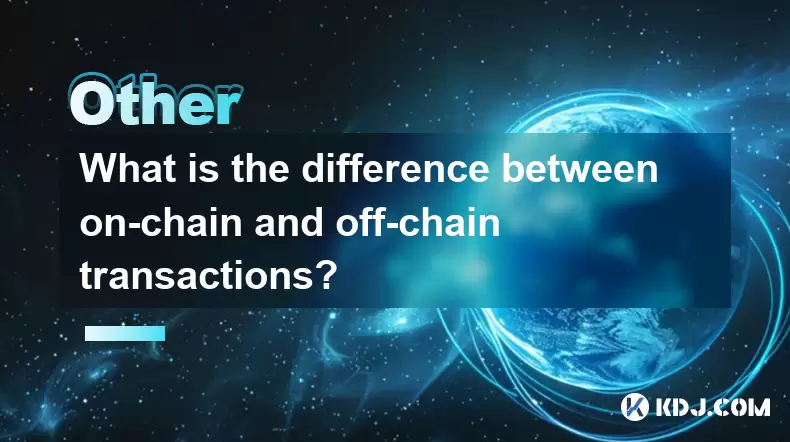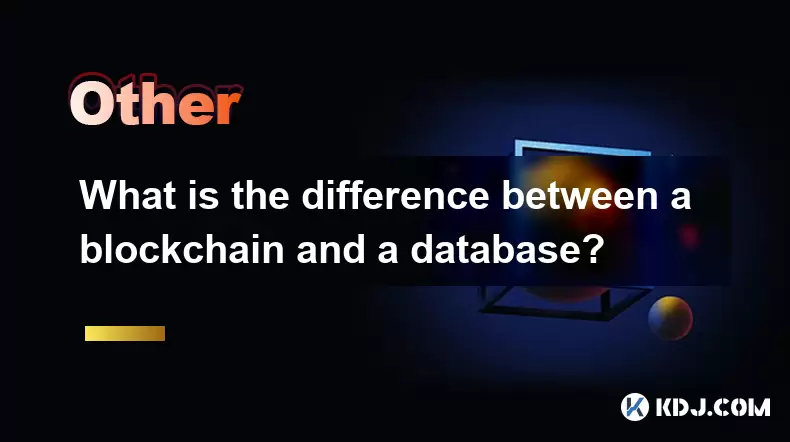-
 Bitcoin
Bitcoin $112400
-1.07% -
 Ethereum
Ethereum $3409
-3.27% -
 XRP
XRP $2.784
-6.60% -
 Tether USDt
Tether USDt $0.9997
-0.03% -
 BNB
BNB $739.3
-2.09% -
 Solana
Solana $158.0
-2.90% -
 USDC
USDC $0.9998
-0.02% -
 TRON
TRON $0.3213
-0.94% -
 Dogecoin
Dogecoin $0.1929
-5.01% -
 Cardano
Cardano $0.6974
-2.82% -
 Hyperliquid
Hyperliquid $36.69
-2.31% -
 Sui
Sui $3.327
-4.80% -
 Stellar
Stellar $0.3672
-5.18% -
 Chainlink
Chainlink $15.65
-3.07% -
 Bitcoin Cash
Bitcoin Cash $525.0
-1.68% -
 Hedera
Hedera $0.2291
-6.00% -
 Avalanche
Avalanche $20.91
-2.96% -
 Ethena USDe
Ethena USDe $1.000
0.00% -
 Toncoin
Toncoin $3.520
-1.12% -
 UNUS SED LEO
UNUS SED LEO $8.968
0.14% -
 Litecoin
Litecoin $105.7
0.26% -
 Shiba Inu
Shiba Inu $0.00001181
-1.79% -
 Polkadot
Polkadot $3.492
-2.08% -
 Uniswap
Uniswap $8.800
-3.10% -
 Dai
Dai $0.9999
-0.01% -
 Monero
Monero $289.9
-3.17% -
 Bitget Token
Bitget Token $4.243
-1.27% -
 Pepe
Pepe $0.00001006
-3.67% -
 Cronos
Cronos $0.1248
-5.68% -
 Aave
Aave $249.7
-2.50%
Does the ranking of Chinese blockchain apps reflect market trends?
Chinese blockchain app rankings reflect market trends, user engagement, and regulatory impacts, guiding investors and developers in understanding technology adoption in China.
Apr 16, 2025 at 01:42 am

The ranking of Chinese blockchain apps provides a fascinating lens through which we can observe and analyze market trends within the cryptocurrency and blockchain sector. Understanding these rankings can help investors, developers, and enthusiasts alike to gauge the popularity and adoption of various blockchain technologies in China, one of the world's most significant markets for cryptocurrency.
The Importance of App Rankings in China
In China, app rankings are often a reflection of user engagement and market penetration. Apps that rank highly are typically those that have managed to capture the interest of a large user base, indicating strong market demand. For blockchain apps, this can be influenced by several factors, including the utility of the app, its ease of use, and the overall sentiment towards cryptocurrencies in the country. By examining these rankings, we can identify which blockchain technologies are gaining traction and which are falling behind.
Key Factors Influencing Blockchain App Rankings
Several key factors contribute to the ranking of blockchain apps in China. User experience is paramount; apps that offer a seamless and intuitive interface are more likely to attract and retain users. Security is another critical factor, as users need to trust that their assets are safe within the app. Additionally, features and functionalities that cater to the specific needs of the Chinese market, such as support for local cryptocurrencies or integration with popular Chinese payment systems, can significantly boost an app's ranking.
Analyzing Market Trends Through App Rankings
By closely monitoring the rankings of blockchain apps, we can discern broader market trends. A sudden rise in the ranking of an app focused on decentralized finance (DeFi), for example, might indicate a growing interest in DeFi solutions among Chinese users. Similarly, a consistent high ranking for apps that support non-fungible tokens (NFTs) could suggest a burgeoning market for digital collectibles in China. These trends are valuable indicators for investors looking to understand where the market is heading.
Case Studies of Top-Ranked Blockchain Apps in China
To illustrate how app rankings reflect market trends, let's consider a few case studies of top-ranked blockchain apps in China. ImToken, for instance, is one of the most popular cryptocurrency wallets in the country. Its high ranking can be attributed to its robust security features and user-friendly interface, which cater well to the needs of Chinese cryptocurrency users. Another example is Binance, which, despite regulatory challenges, maintains a strong presence in China due to its comprehensive trading platform and wide range of supported cryptocurrencies.
The Role of Regulatory Environment in App Rankings
The regulatory environment in China plays a significant role in shaping the rankings of blockchain apps. Stringent regulations can lead to the delisting or reduced visibility of certain apps, while a more relaxed approach might allow for greater innovation and competition. For instance, apps that comply with Chinese regulations on cryptocurrency trading and investment are more likely to achieve higher rankings, as they can operate more freely within the legal framework.
How App Rankings Influence Investment Decisions
App rankings can also influence investment decisions within the cryptocurrency market. Investors often look to app rankings as a barometer of market sentiment and potential growth areas. A blockchain app that consistently ranks high is likely to attract more investment, as it indicates a strong user base and potential for future growth. Conversely, apps that see a decline in their rankings might signal to investors that it's time to reevaluate their positions.
The Impact of Cultural and Economic Factors
Cultural and economic factors in China also play a crucial role in shaping the rankings of blockchain apps. The Chinese New Year, for example, can lead to increased activity in apps that facilitate digital red envelopes, which are popular during the holiday season. Economic conditions, such as fluctuations in the value of the Chinese yuan, can also influence the demand for cryptocurrencies and, by extension, the rankings of blockchain apps. Understanding these cultural and economic nuances is essential for accurately interpreting app rankings.
Technical Analysis of Blockchain App Rankings
From a technical perspective, analyzing the rankings of blockchain apps involves looking at various metrics such as download numbers, user ratings, and active user counts. These metrics provide a quantitative measure of an app's performance and popularity. Download numbers indicate initial interest, while user ratings and active user counts reflect ongoing engagement and satisfaction. By combining these metrics, we can gain a comprehensive understanding of an app's market position and trends.
The Role of Social Media and Online Communities
Social media and online communities play a significant role in influencing the rankings of blockchain apps in China. Platforms like WeChat and Weibo are crucial for spreading awareness and driving downloads. Online communities dedicated to cryptocurrencies and blockchain technology can also boost an app's ranking by fostering discussions and recommendations. Monitoring these platforms can provide valuable insights into the factors driving app rankings and market trends.
FAQs
Q: How often do blockchain app rankings change in China?
A: Blockchain app rankings in China can change frequently, often on a daily or weekly basis. This volatility is due to various factors such as new app releases, updates to existing apps, shifts in user preferences, and changes in the regulatory environment.
Q: Can foreign blockchain apps rank highly in China?
A: Yes, foreign blockchain apps can rank highly in China, provided they comply with local regulations and cater to the needs of the Chinese market. Apps like Binance, despite being headquartered outside of China, have managed to achieve high rankings by offering services tailored to Chinese users.
Q: How do app developers use rankings to improve their apps?
A: App developers use rankings to identify areas for improvement and to understand user preferences. By analyzing feedback and metrics associated with their app's ranking, developers can make targeted updates and enhancements to improve user experience and increase their app's market position.
Q: Are there any tools available for tracking blockchain app rankings in China?
A: Yes, there are several tools available for tracking blockchain app rankings in China. Platforms like App Annie and Sensor Tower provide comprehensive data on app rankings, downloads, and user engagement, which can be invaluable for understanding market trends.
Disclaimer:info@kdj.com
The information provided is not trading advice. kdj.com does not assume any responsibility for any investments made based on the information provided in this article. Cryptocurrencies are highly volatile and it is highly recommended that you invest with caution after thorough research!
If you believe that the content used on this website infringes your copyright, please contact us immediately (info@kdj.com) and we will delete it promptly.
- Bitcoin Liquidity, Osmosis Zone, and Investor Interest: A Deep Dive
- 2025-08-03 15:16:44
- Web3, Sports, and Computing Power: A New Ballgame
- 2025-08-03 15:16:44
- Ethereum, Altcoin Surge, and the MAGACOIN Presale: What's the Buzz?
- 2025-08-03 15:16:44
- Crypto Whales, Meme Coins, and Moonshots: Navigating the Wild West of 2025
- 2025-08-03 15:16:44
- Hong Kong Stablecoin Licenses: A Tight Squeeze?
- 2025-08-03 15:16:45
- Dogecoin's Bullish Signals: Engulfing Candle and Whale Accumulation Point to Potential Surge
- 2025-08-03 15:16:45
Related knowledge

What is the difference between on-chain and off-chain transactions?
Aug 02,2025 at 04:22pm
Understanding On-Chain TransactionsOn-chain transactions refer to digital asset transfers that are recorded directly on a blockchain ledger. These tra...

What is a node's role in a blockchain network?
Aug 03,2025 at 03:16pm
Understanding the Function of a Node in a Blockchain NetworkA node is a fundamental component of any blockchain network, acting as a participant that ...

What is the double-spending problem and how does blockchain prevent it?
Aug 02,2025 at 01:07pm
Understanding the Double-Spending ProblemThe double-spending problem is a fundamental challenge in digital currency systems where the same digital tok...

What is the difference between a blockchain and a database?
Aug 01,2025 at 09:36pm
Understanding the Core Structure of a BlockchainA blockchain is a decentralized digital ledger that records data in a series of immutable blocks linke...

How does blockchain handle scalability?
Aug 02,2025 at 02:58pm
Understanding Blockchain Scalability ChallengesBlockchain scalability refers to a network's ability to handle an increasing volume of transactions wit...

What is the role of cryptography in blockchain?
Aug 03,2025 at 03:42pm
Understanding the Foundation of Blockchain SecurityCryptography is the cornerstone of blockchain technology, providing the essential tools to ensure d...

What is the difference between on-chain and off-chain transactions?
Aug 02,2025 at 04:22pm
Understanding On-Chain TransactionsOn-chain transactions refer to digital asset transfers that are recorded directly on a blockchain ledger. These tra...

What is a node's role in a blockchain network?
Aug 03,2025 at 03:16pm
Understanding the Function of a Node in a Blockchain NetworkA node is a fundamental component of any blockchain network, acting as a participant that ...

What is the double-spending problem and how does blockchain prevent it?
Aug 02,2025 at 01:07pm
Understanding the Double-Spending ProblemThe double-spending problem is a fundamental challenge in digital currency systems where the same digital tok...

What is the difference between a blockchain and a database?
Aug 01,2025 at 09:36pm
Understanding the Core Structure of a BlockchainA blockchain is a decentralized digital ledger that records data in a series of immutable blocks linke...

How does blockchain handle scalability?
Aug 02,2025 at 02:58pm
Understanding Blockchain Scalability ChallengesBlockchain scalability refers to a network's ability to handle an increasing volume of transactions wit...

What is the role of cryptography in blockchain?
Aug 03,2025 at 03:42pm
Understanding the Foundation of Blockchain SecurityCryptography is the cornerstone of blockchain technology, providing the essential tools to ensure d...
See all articles

























































































